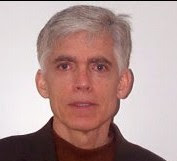One of the challenges for those living a spiritual/religious life but not believing in reincarnation is how to deal with what seems like overwhelming tragedy in human experience. Some examples of individual tragedy are the death of a young child, loss of parents by a child, and youth in very poor country who never has a chance to be educated. Mass tragedy examples are genocide in an African countries, 100s dying in plane crashes, 1000s dying in a nature disasters (e.g., cyclone/hurricane in South Asia), and terrorist attacks creating mass deaths (such as the 9/11 destruction of the Trade Center Towers in New York City).
Those involved in the personal tragedies feel the loss of critical loved ones. When a child dies at a very young age, we grieve because the child never got a chance to fully live. Tragedy, though, comes from the belief that the individuals lost their opportunity to fully experience life with its loved ones and that there is not another opportunity They had their opportunity and it was cut short, or worse, never got started.
Life won’t seem so tragic when we truly know that we (and all others) have the opportunity to live many human lives and that we do these with key members of our soul group who populate our immediate family. If we could see our current life as similar to a summer neighborhood play or movie we are putting on with our immediate family and best friends. Sometimes we have the starring role; other times we have a supporting role or just a bit part. If we are good actors we get caught up in our roles: feeling the appropriate human emotions called for in each scene (passions, anger, sorrow, depression, excitement, etc.). But after the play is completed we leave it behind us once we finish with the post-play party with all reviewing their favorite scenes. We then start planning next summer’s play: changing roles, maybe continuing some drama left over from the last or some previous play, giving some of those with bit parts a chance to have one of the “starring” roles, and exploring other aspect of human drama. As good actors we are to fully experience the human emotions, including the pain from losing a loved one. But we know after completing a “tragic” scene that it is not the end of our loved ones and our relationship with them.
Not getting caught up in human tragedy does not mean that we don’t feel compassion and love for those who are having the experience (including ourselves). With a real understanding of reincarnation and our soul nature, we know that life never ends and that we will always be with our loved ones—our soul companions. We know that the human dramas are learning scenes that we “wrote” and planned with those involved in them. All of those involved in seemingly tragic loss scenes actually volunteered to play these supporting roles to stimulate we surviving ones to spiritual growth by learning to keep our hearts open and serving others.
A good spiritual understanding of individual tragic events can be found in Robert Schwartz’s Courageous Souls: Do We Plan Our Life Challenges Before Birth?, Whispering Winds Pub (2007). This book provides great detail on before human life planning by the souls, how the soul enlists others to play different roles in helping create their life challenges, and how the soul can gain great soul knowledge by overcoming the human challenges they set up. It really helps one to see life as a courageous drama and not a human tragedy. Schwartz brings in high quality medium and channels to help him gather information from the spiritual realm. It covers all types of challenges: physical illnesses, parenting handicapped children, being deaf or blind, drug and alcohol addictions, death of a loved one and accidents.
The analogies for mass death “tragedies” would be the large Hollywood film epics where 100s and 1000s of “extras” are used for the mass war and destruction scenes. Souls volunteer to play these parts knowing that they are involved in moving human conscientiousness.
Copyright Douglas Kinney
Sunday, March 1, 2009
Subscribe to:
Posts (Atom)
